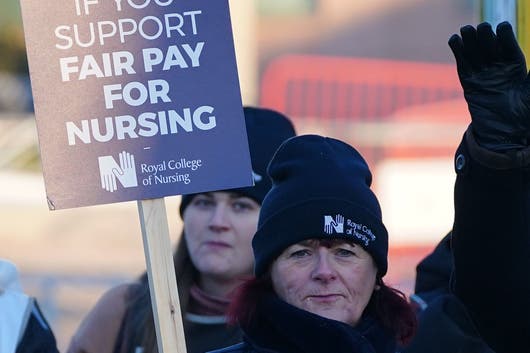Nurses in England, Wales and Northern Ireland have started a nationwide strike in the largest action of its kind in NHS history.
Though staff will continue to provide “life-preserving” and some urgent care, routine surgery and other planned treatment is likely to be disrupted.
The Royal College of Nursing (RCN) said its members had been given no choice after ministers refused to reopen pay talks.
The UK government said the RCN’s 19 per cent pay rise demand was unaffordable.
RCN General Secretary, Pat Cullen, has called on the government to “do the decent thing” and resolve the dispute before the year ends.
Ms Cullen told BBC Breakfast the strike marked “a tragic day in nursing. We need to stand up for our health service, we need to find a way of addressing those over seven million people that are sitting on waiting lists, and how are we going to do that? By making sure we have got the nurses to look after our patients, not with 50,000 vacant posts, and with it increasing day by day.”
Health Minister Maria Caulfield, a former nurse, accepted “it is difficult” living on a nurse’s wage, but said that a 19% pay rise “is an unrealistic ask”.
The action will involve nurses in around a quarter of hospitals and community teams in England, all health boards in Northern Ireland and all but one in Wales. Nurses are not striking in Scotland.
Under trade union laws, the RCN has to ensure life-preserving care continues during the 12-hour strike.
Chemotherapy and kidney dialysis should run as normal, along with intensive and critical care, children’s accident and emergency and hospital neonatal units, which look after newborn babies.
Beyond that, it will be up to NHS boards and trusts to negotiate services on a local level, with discussions likely to come down to the circumstances of some individual patients.
The biggest impact is likely to be in pre-booked treatment such as hernia repair, hip replacements or outpatient clinics.















